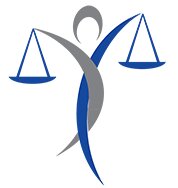Best Professional Malpractice Lawyers in Trinidad and Tobago
Share your needs with us, get contacted by law firms.
Free. Takes 2 min.
Or refine your search by selecting a city:
List of the best lawyers in Trinidad and Tobago
About Professional Malpractice Law in Trinidad and Tobago
Professional malpractice in Trinidad and Tobago involves the failure of a professional to meet the standard of care expected in their field, resulting in harm or loss to a client or third party. This area of law encompasses various professions, including medical practitioners, lawyers, accountants, and engineers. Practitioners are expected to perform their duties competently, adhering to established guidelines and ethics. When they fail to do so, affected parties may seek redress through legal channels.
Why You May Need a Lawyer
There are several circumstances where one might require legal assistance in a professional malpractice case in Trinidad and Tobago:
- If you have suffered harm due to a professional's failure to perform their duties diligently.
- When there is clear evidence of negligence or breach of a duty of care by a professional.
- If you are a professional facing allegations of malpractice and require legal defense.
- In cases where disputes arise over the extent of damages or compensation owed.
- To navigate complex legal processes and effectively present your case before a court or tribunal.
Local Laws Overview
In Trinidad and Tobago, professional malpractice claims are typically governed by the principles of tort law, particularly negligence. Key aspects of local laws include:
- Duty of Care: Professionals owe a duty to their clients to act in accordance with the competence and diligence expected in their profession.
- Breach of Duty: The plaintiff must prove that the professional breached their duty of care.
- Causation: There must be a direct link between the professional's breach of duty and the harm suffered.
- Damages: Recoverable damages must be quantifiable and directly linked to the malpractice incident.
- Limitation Periods: There are statutory time limits within which malpractice claims must be filed, typically beginning from the time the claimant becomes aware of the malpractice.
Frequently Asked Questions
What is the first step if I believe I've been a victim of professional malpractice?
First, gather all relevant documents and details about the incident. Consultation with a qualified attorney specializing in professional malpractice is advisable to evaluate the merits of your case.
How long do I have to file a malpractice claim?
The time limit to file a claim generally depends on the type of malpractice but typically ranges up to four years from the date you became aware of the malpractice.
What kind of evidence will I need to prove my malpractice case?
Evidence may include contracts, records of communication, expert testimonies, and any documents showing the standard procedures and how they were breached by the professional.
Can I sue for malpractice if I didn’t suffer any financial loss?
Generally, a claim requires proof of damages, which could be financial or other types of harm, directly resulting from the malpractice.
Can a professional be held liable if I signed a liability waiver?
This depends on the specific terms of the waiver and the context; waivers may limit certain liabilities but cannot exclude gross negligence or fraudulent behavior.
How are damages in malpractice cases calculated?
Damages are calculated based on actual losses, potential future losses, and in some instances, exemplary damages may be awarded for egregious conduct.
Will my case go to court?
Not necessarily; many malpractice cases are settled out of court through negotiations or mediation.
Is there a way to resolve malpractice disputes without litigation?
Alternative Dispute Resolution mechanisms such as mediation and arbitration can be used to amicably settle disputes.
What defenses can a professional raise against a malpractice claim?
Common defenses include arguing that the harm was not foreseeable, the client contributed to the harm, or the act was within the accepted standard of care.
How much will it cost to hire a malpractice lawyer?
Costs can vary depending on case complexity, the lawyer's experience, and the fee agreement. Some lawyers may work on a contingency fee basis, charging a percentage of the awarded damages.
Additional Resources
- The Law Association of Trinidad and Tobago - offers guidance and resources on finding legal representation.
- Consumer Affairs Division - provides information on consumer rights and professional conduct standards.
- The judicial website of Trinidad and Tobago - to access legal precedents and updates on malpractice law.
- Professional regulatory bodies - such as the Medical Board of Trinidad and Tobago for complaints against medical practitioners.
Next Steps
If you require legal assistance in a professional malpractice matter, consider taking the following steps:
- Consult with a qualified lawyer specializing in professional malpractice to understand your legal rights and options.
- Prepare a comprehensive collection of all documentation and communications related to the incident.
- Consider whether alternative dispute resolution methods such as mediation could be suitable for your case.
- Review any available resources and seek support from regulatory bodies relevant to the profession involved.
Lawzana helps you find the best lawyers and law firms in Trinidad and Tobago through a curated and pre-screened list of qualified legal professionals. Our platform offers rankings and detailed profiles of attorneys and law firms, allowing you to compare based on practice areas, including Professional Malpractice, experience, and client feedback.
Each profile includes a description of the firm's areas of practice, client reviews, team members and partners, year of establishment, spoken languages, office locations, contact information, social media presence, and any published articles or resources. Most firms on our platform speak English and are experienced in both local and international legal matters.
Get a quote from top-rated law firms in Trinidad and Tobago — quickly, securely, and without unnecessary hassle.
Disclaimer:
The information provided on this page is for general informational purposes only and does not constitute legal advice. While we strive to ensure the accuracy and relevance of the content, legal information may change over time, and interpretations of the law can vary. You should always consult with a qualified legal professional for advice specific to your situation.
We disclaim all liability for actions taken or not taken based on the content of this page. If you believe any information is incorrect or outdated, please contact us, and we will review and update it where appropriate.
Browse professional malpractice law firms by city in Trinidad and Tobago
Refine your search by selecting a city.











